Kolchak: The Night Stalker (1974–75)
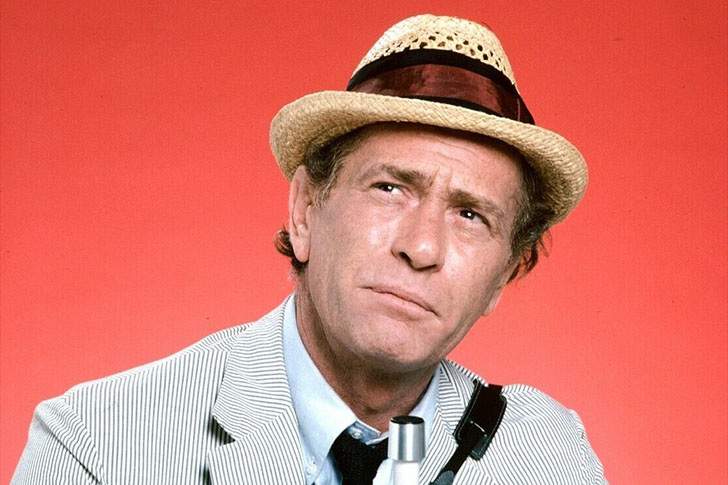
"Kolchak: The Night Stalker" is a '70s television series aired on the ABC network between 1974 and 1975. The plot follows a reporter Carl Kolchak, played by Darren McGavin, as he investigates crimes with unlikely causes, such as science fiction, the supernatural, or fantastic creatures.
Countless fans consider it a cult classic similar to "Freaks and Geeks," however, it lasted only one season. The show has remained popular and is in syndication. The reason for its cancellation was that McGavin asked to be released from his contract due to uncredited producing duties and his disappointment with the series' later scripts.
Hawaii Five-O (1968–80)
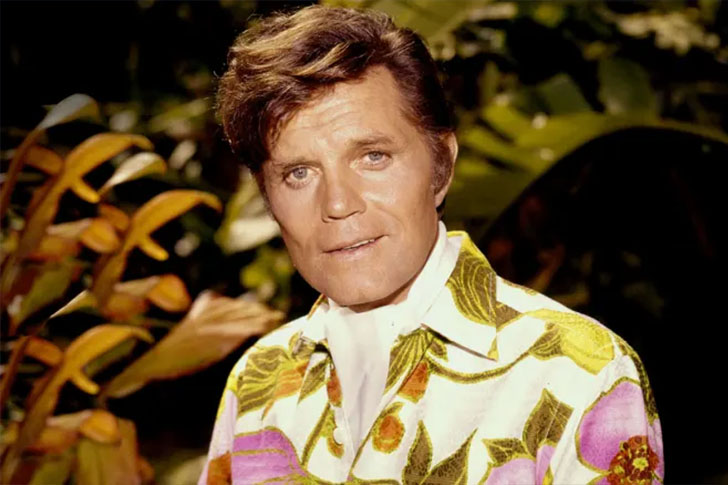
''Hawaii Five-0'' is an American television police drama that aired from the late '60s through the '70s before it ended in 1980. The show was created by Leonard Freeman, a writer, and producer working for CBS.
The plot centered around a fictional police force in the state of Hawaii. When its last episode aired, it was the longest-running police-centered drama in American small-screen history. In 2010, we got a reboot which ran on the network for ten seasons till its conclusion in 2020. ''Hawaii Five-0'' remains a fan favorite for being entertaining, fast-paced, and set on the picturesque island of Hawaii.
The Odd Couple (1970–75)
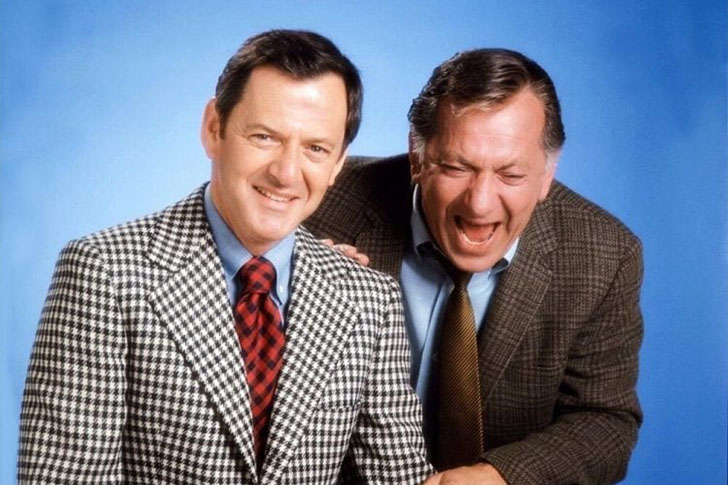
"The Odd Couple," titled on-screen as "Neil Simon's The Odd Couple," is a television program that aired on the ABC network from 1970 to 1975. The show, based on a Broadway play written by the famous creator Neil Simon had also been adapted into a 1968 film with the same title.
The series lasted a whopping 114 episodes. The characters, played by Tony Randall and Jack Klugman, managed to convince audiences that they were two divorcees who ended up sharing an apartment in New York. With smash ratings and critical acclaim, the co-stars had great chemistry on-screen, making the show a favorite among audiences.
The Partridge Family (1970–74)
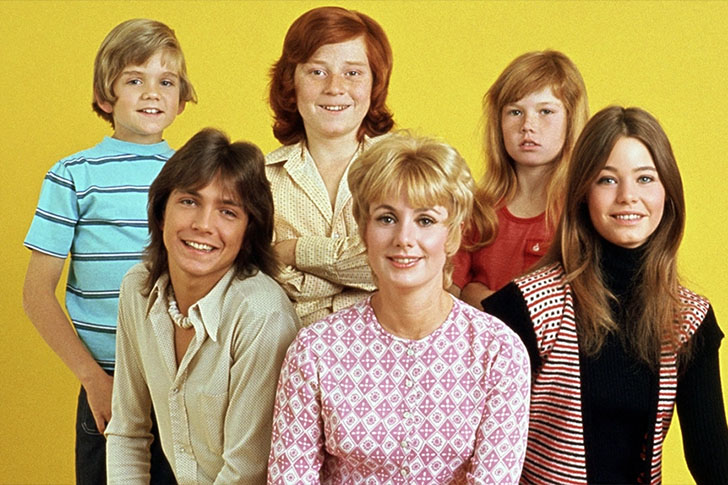
This show was another big hit of the '70s. "The Patridge Family" ran for four seasons on the ABC network as part of the Friday line-up. It starred David Cassidy, one of Hollywood's biggest stars at the time. Every teenage girl who watched the show became absolutely enamored with the handsome actor.
The story centered around a musical family, a newly widowed mother, played by Shirley Jones, and her four children. In the pilot episode, the children convince their mum to help them record a pop single in their garage. That song soon becomes a top-40 hit, leading to the family going on tour.
Donny & Marie (1975–79)
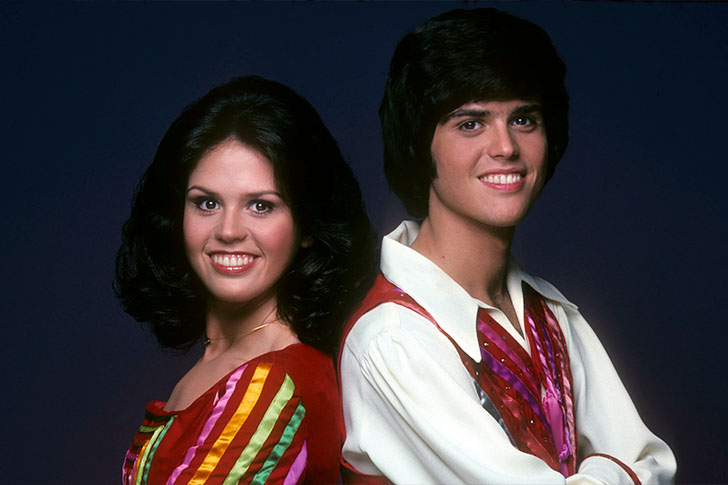
Donnie and Marie was an American television show aired on ABC in the '70s. It featured a brother and sister pop star duo, Donny and Marie Osmond. Donny Osmond first became famous as part of a singing group with his brothers, The Osmonds. Meanwhile, Marie was celebrated in her own right; she was one of the youngest singers to reach the top of the Billboard country music charts.
The show capitalized on the duo's already-established fame through their music careers. The program aired for two seasons but later declined in popularity when fans discovered that Donny was dating Debbie Glenn, a woman from his home state of Utah.
Mannix (1967–75)
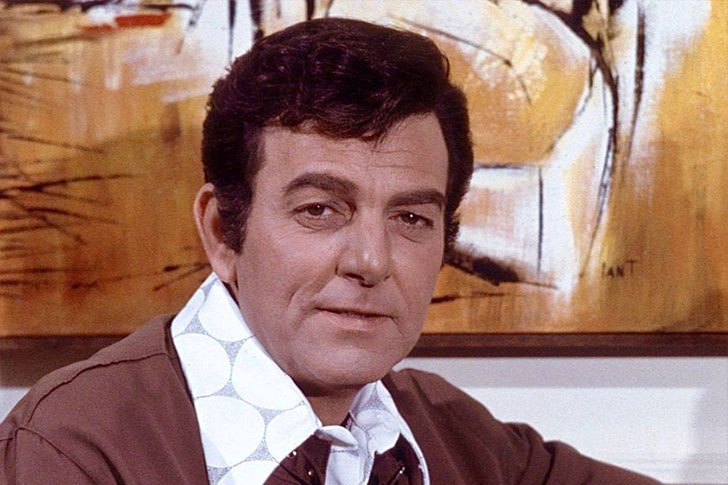
"Mannix" was an American detective television series on the CBS network on-air for eight spectacular seasons. The show featured a detective, Joe Mannix, portrayed by Mike Connors, who played by his own rules when it came to crime solving. His unorthodox methods kept cracking cases and audiences glued to the screen.
The series resonated with many as Connors's character was also a former soldier in the army. From season two onward, Mannix solves most of his cases independently with help from his trusted secretary Peggy Fair. The latter was played by Gail Fisher, one of the first Black actresses to have a recurring role on television.
The Jeffersons (1975–85)
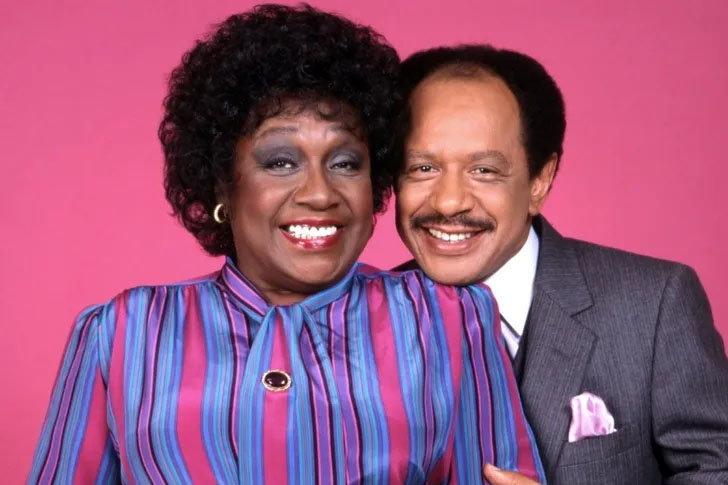
"The Jeffersons" was a spin-off from the "All in the Family" television show. It featured a prosperous African-American family who was able to move from Queens to New York owing to the show's main character George Jefferson's successful dry-cleaning business, Jefferson Cleaners.
It was a transcendent show for its time for all the right reasons. Network television rarely included a series with an African-American family as the show's basis. However, the natural chemistry between George and Louise Jefferson made it an easy decision for the network. The two worked so well together that it was hard to imagine that they weren't married in real life.
Happy Days (1974–84)
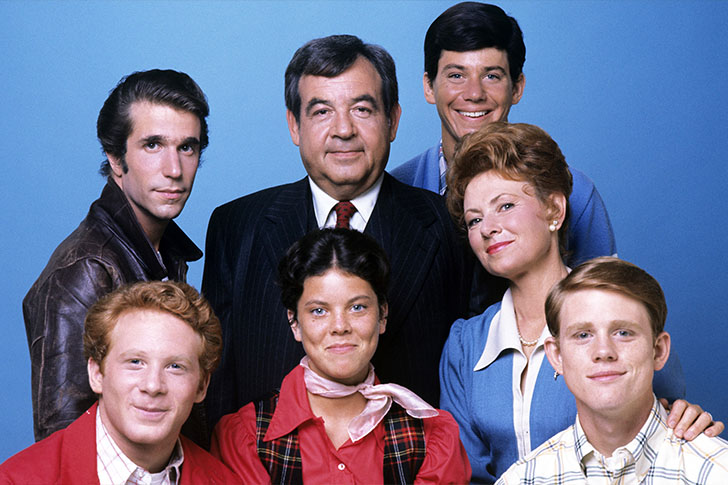
"Happy Days" was an American sitcom on the ABC network from the mid-'70s to the '80s. The show presented an idealized version of the 50s', which many believe to be the best time in American history. Despite opening to mixed reviews, it became rather popular over time.
The first two seasons focused on the dilemmas of teenager Richie Cunningham, played by Ron Howard, and his high school friends and family. However, later seasons changed the format and shifted focus to a previously minor character "Fonzie," played by Henry Winkler. According to surveys, audiences loved the "cool" biker kid and high school dropout persona he presented.
The Sonny and Cher Comedy Hour (1971–74)
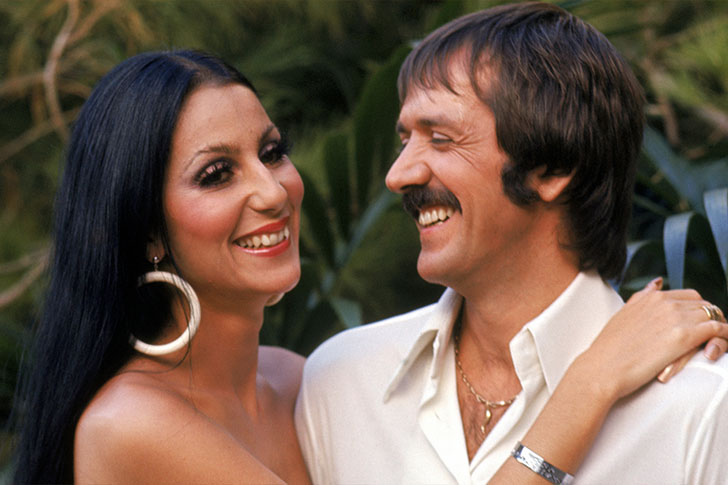
Variety shows featuring many acts, such as musical performances, acrobatics, magic, and ventriloquism, were super popular during the '70s. While they haven't precisely remained popular with the newer generations, you can't deny there was something endearing about watching a show with so many different elements.
The "Sonny and Cher Comedy Hour" featured one of Hollywood's absolute darlings during this period. Cher and her then-husband Sonny Bono were an entertainment duo who started their careers as backup singers for Phil Spector. They would perform comedy sketches on their show, exchange friendly banter, and sing some of their greatest musical hits like "I Got You, Babe."
The Bob Newhart Show (1972–78)
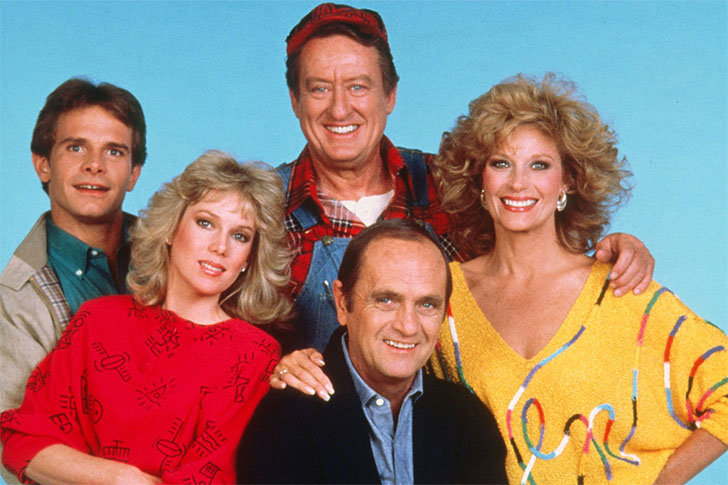
"The Bob Newhart Show" ran on television for six seasons in the '70s. The program featured comedian Bob Newhart, portraying a psychologist whose interactions with his friends and family led to humorous situations. In each episode, the plot revolved around Newhart's home and family life, featuring his wife, played by Suzanne Pleshette.
The part gave Newhart the rare opportunity to showcase his entire repertoire of skills, including his famous razor-sharp wit and cutting humor. The show received two Emmy nominations in the category of Outstanding Comedy Series and was ranked no. 44 on TV Guide's 50 Greatest TV Shows of All Time.
Taxi (1978–83)
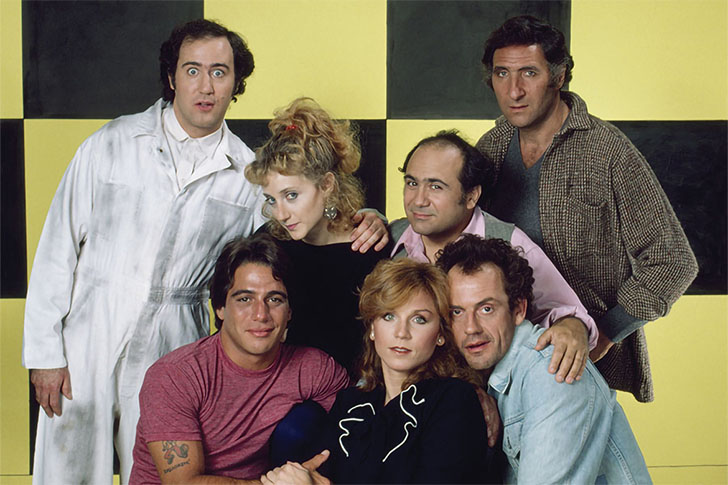
In the '70s, ensemble casts became all the rage once the TV show "Taxi" aired in 1978. It told a story about cab drivers based in New York City and won a total of 18 Emmy Awards out of the 31 times it was nominated. These wins included winning an Emmy three years straight for Outstanding Comedy.
The show focused on a fictional company Sunshine Cab Company, which hires several taxi drivers to work for them. Its cast included Judd Hirsch, Danny DeVito, and Andy Kaufman. Despite the humor, the plot also tackled serious life issues such as; substance abuse, single parenthood, obesity, and racism.
Laverne & Shirley (1976–83)
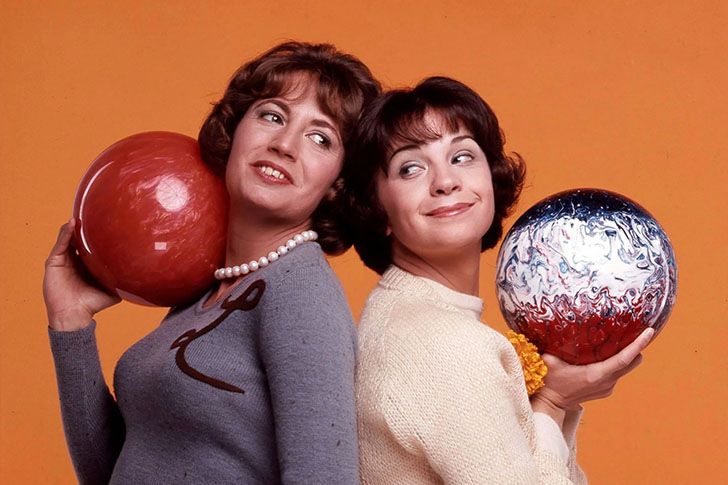
During the '70s, it was common for shows to hinge on already popular shows by creating spin-offs about characters from the original. For instance, "Laverne & Shirley" was a spin-off from the well-known "Happy Days." The latter's writers first introduced these two female characters in the original show as acquaintances of the main character Fonzie.
"Laverne & Shirley" became one of the most popular spin-off shows of all time, and by its third season, it was the most-watched in America. The series went on for eight seasons but eventually got canceled when Cindy Williams, the character that played "Shirley," fell pregnant and had to be released from her contract.
One Day at a Time (1975–84)
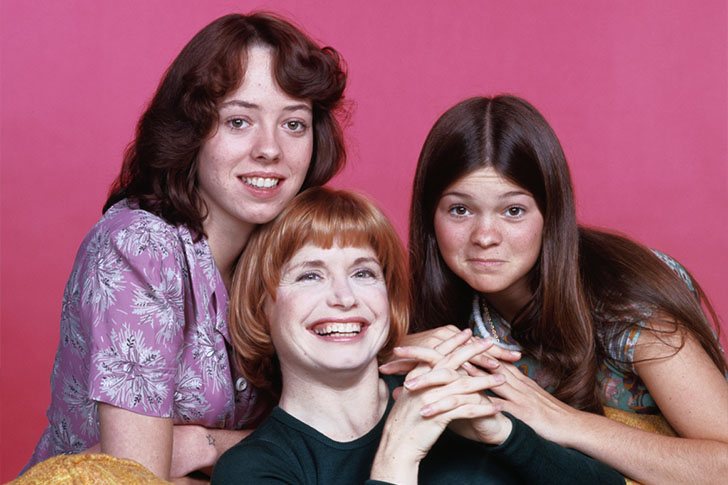
"One Day at a Time" was a television series aired from 1975 to 1984 on CBS. It featured a single divorced mother, played by Bonnie Franklin, raising two teenage daughters. Mackenzie Phillips and Valerie Bertinelli played the adolescent daughters on the show set in Indianapolis.
The show's serious theme wasn't common with other '70s television programs. It still had its pleasant heartfelt moments, but it also tackled the daily struggles and problems of a single mother raising two girls on her own. The program was pretty progressive for its time, and Norman Lear, the show's creator, can be credited for this.
The White Shadow (1978–81)
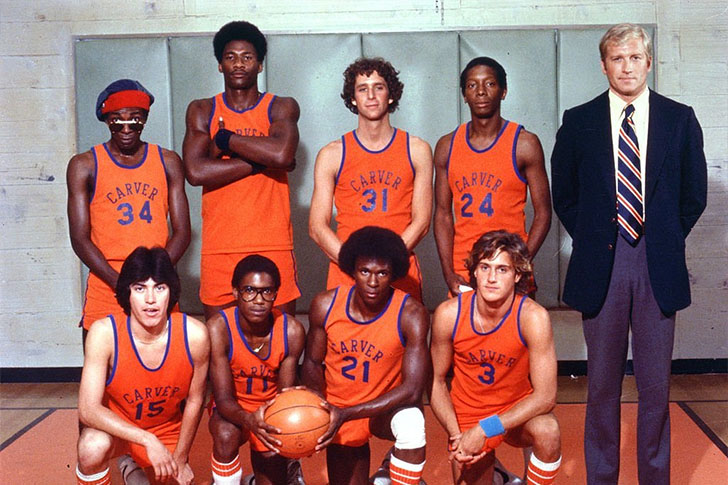
"The White Shadow" was a television show created by Bruce Paltrow, a three-season series focusing on a former NBA player who got a job as a high school coach in a poverty-stricken area of Los Angeles. The coach was played by Ken Howard, who took on the position after suffering a severe knee injury while playing for the Chicago Bulls.
Unlike most shows on our list, this wasn't a comedy. It took on rather somber subject matters such as; illicit substance use, gambling, child abuse, and mental disabilities. Despite relatively low ratings, the series received rave reviews from critics for tackling such tricky and relevant subjects.
Eight is Enough (1977–81)
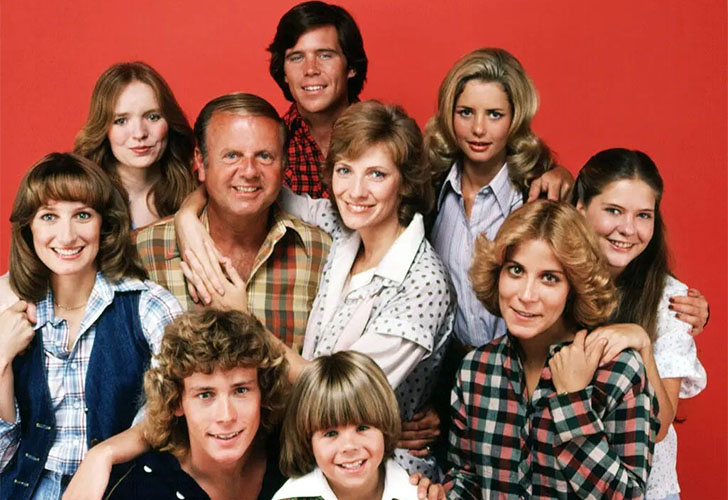
"Eight is Enough" was based on a real-life newspaper columnist, Tom Braden, who wrote a book chronicling his life with eight children. As the title suggests, it was a drama centered around the life of a large family, quite similar to 2016's "This is Us." The show ran for a total of five seasons and 112 episodes.
The family patriarch, played by Dick Van Patten, brought great energy and actual fatherly qualities to the role, as he had three children of his own. The show dealt with life's more significant issues, such as the family head passing away following a terminal illness after only four episodes.
Little House on the Prairie (1974–83)
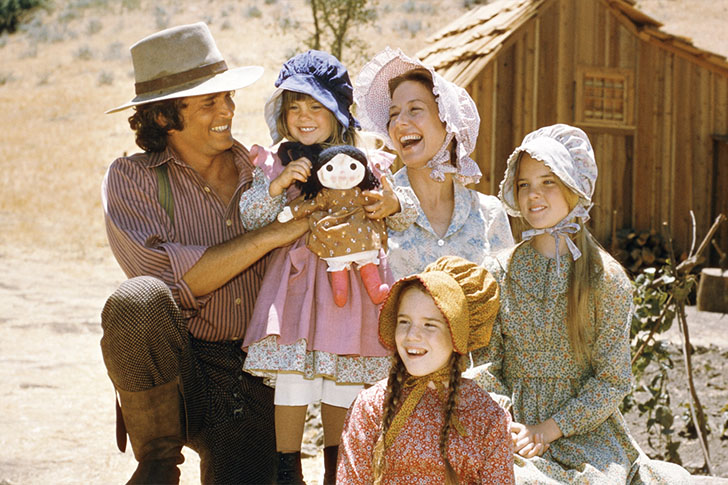
"Little House on the Prairie" ran on NBC for nine seasons. The program was as wholesome as possible and focused on the Ingalls family, who live on a farm in Plum Creek, Minnesota. The writers adapted the story from the novels by Laura Ingalls Wilder of the same name.
The books were autobiographical, and they inspired this program on every family's watch list in the '70s and '80s. Nowadays, it's become an ageless television classic available for anyone to watch, thanks to syndication and DVDs. The show tackles many different themes, such as adoption, faith, poverty, and social and interpersonal prejudices.
Good Times (1974–80)
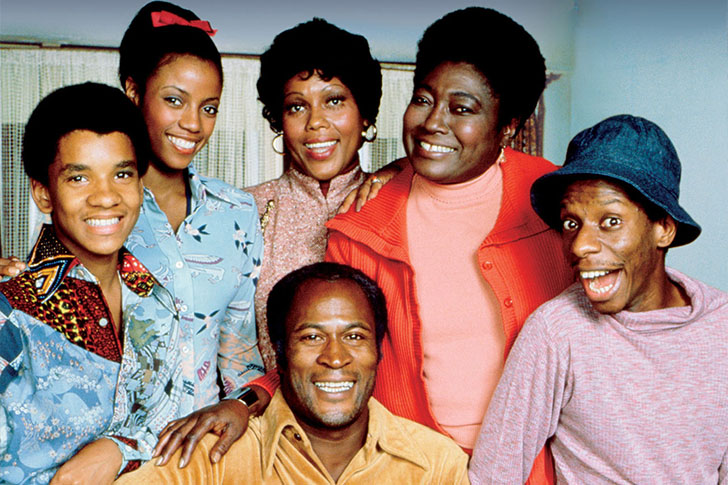
"Good Times" was a sitcom developed by producer Norman Lear for the CBS television network. The program was the first show that featured a household with two African-American parents. Interestingly, this was a spinoff of "Maude," which, in turn, was yet another spinoff of "All in the Family."
Most episodes featured J.J. junior's efforts to make a better life for himself outside the ghetto. However, these efforts usually ended in bitter disappointments, but this did not dampen the general mood of the show, which remained uplifting, inspiring, and positive. Unfortunately, the network canceled the series after six seasons due to steadily declining ratings.
Dallas (1978–91)
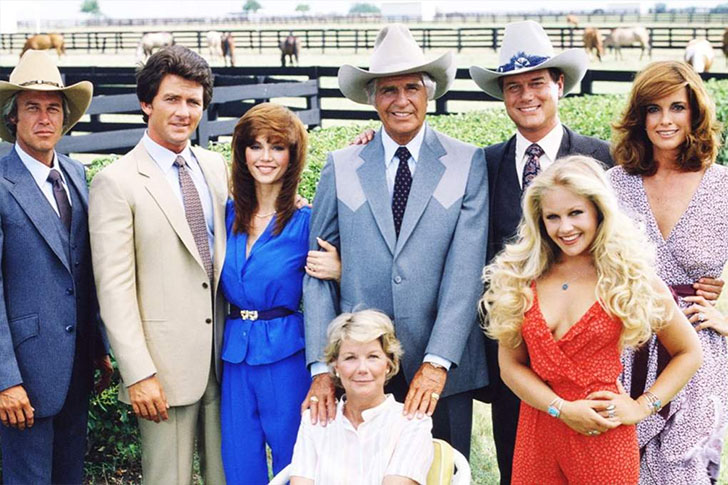
"Dallas" ran for 357 episodes and over 14 seasons. Obviously, audiences love any domestic turmoil depicted in television because it can distract us from our own family disputes. The show was a combination of luxury and family members scheming against one another; money was almost always at the center of the conflict.
In the '80s, the show was one of the most famous pop culture entities. With an ensemble cast full of fabulously wealthy characters that were larger than life, their scheming and plotting made watching the plot even more captivating. Dallas quickly rose in popularity even outside America and gained international audiences.
Three’s Company (1976–84)

"Three's Company" was an American television series aired on the ABC television network for eight seasons. The plot revolved around three roommates who were all single and lived together platonically in an apartment complex in California. The show followed the character's constant misunderstandings, mishaps, and financial struggles.
"Three's Company" was a constant top ten during its heyday in the '70s and has remained popular through syndication and DVD releases. Humor was at the show's center, but it had other themes as well, such as conflict resolution, dysfunctional marriages, and the LGBT community. Sadly, the network canceled it after eight seasons due to plummeting ratings.
M*A*S*H (1972–83)
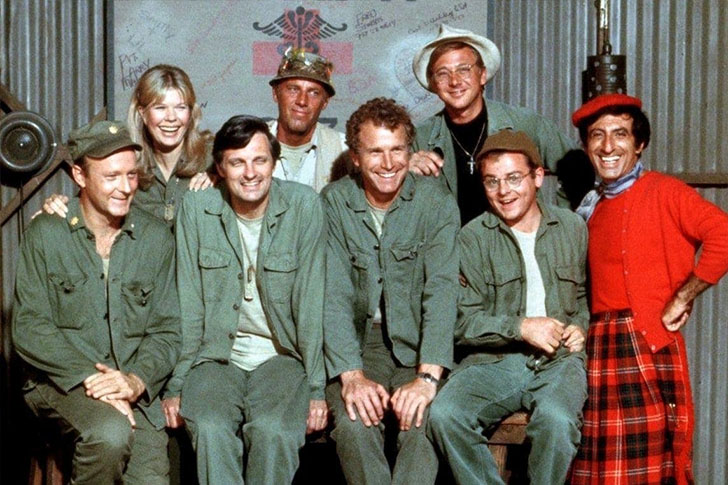
We have all probably seen an episode of "M*A*S*H," an acronym for Mobile Army Surgical Hospital. The comedy and war drama aired on CBS from 1972 to 1983. It ran for 11 years, and we can still catch it on re-runs or DVDs. Most fans and critics credit its longevity to the compelling storylines and clever writing.
"M*A*S*H" also had a strong ensemble cast with the acting chops to pull off a great script. It wasn't a slapstick comedy in that it had some elements of real drama too. In 2002, the series ranked no. 25 on TV Guide's 50 Greatest TV Shows of All Time.
The Waltons (1972–81)
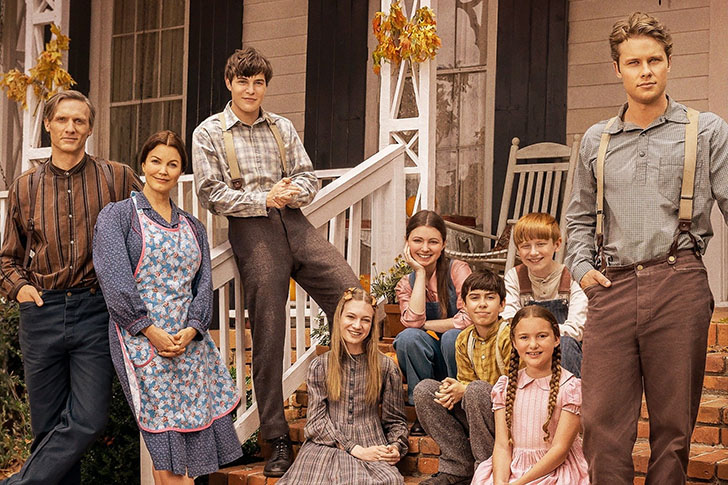
Viewers love a show that they can relate to, and "The Waltons" gave them just that. This show is a historical drama set in rural Virginia about a family living through the Great Depression and WWII. It was created by author Earl Hamner Jr. and, was based on his book Spencer's Mountain.
The program ran for nine seasons on CBS before getting canceled. However, shocked fans almost stopped this from happening. Ratings shot up the week after the network announced they would be canceling the show, which almost changed their minds. However, the show had run its course and was canceled in 1981.
The Carol Burnett Show (1967–78)
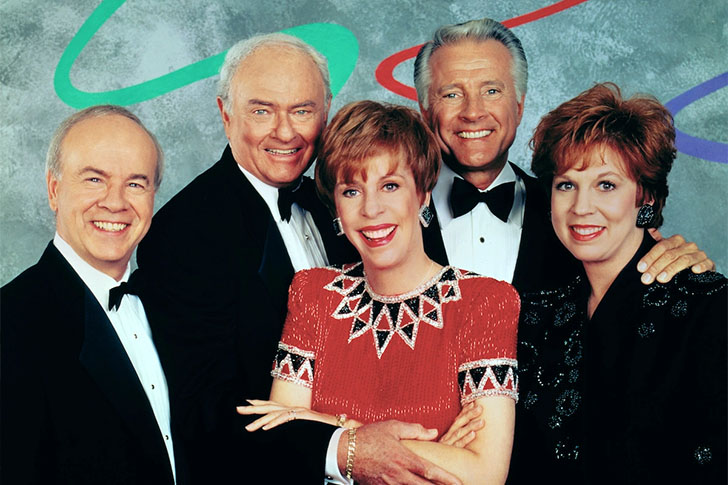
As we mentioned earlier, variety programs were popular in the '70s, and "The Carol Burnett Show" was one of those programs. The show involved skits, vaudeville-style performances, musical skits, and other sketches. All these featured Burnett, and her co-stars, including Vicki Lawrence, Harvey Korman, and Lyle Waggoner.
The long-running show established Burnett as a television icon and made her co-stars household names in showbiz. During its legendary run, "The Carol Burnett Show" got nominated for an Emmy a staggering 70 times, winning 25! By the late '70s, Burnett felt the variety-style show's genre was on its way out and decided to end the series rather than have it canceled.
All in the Family (1970–79)
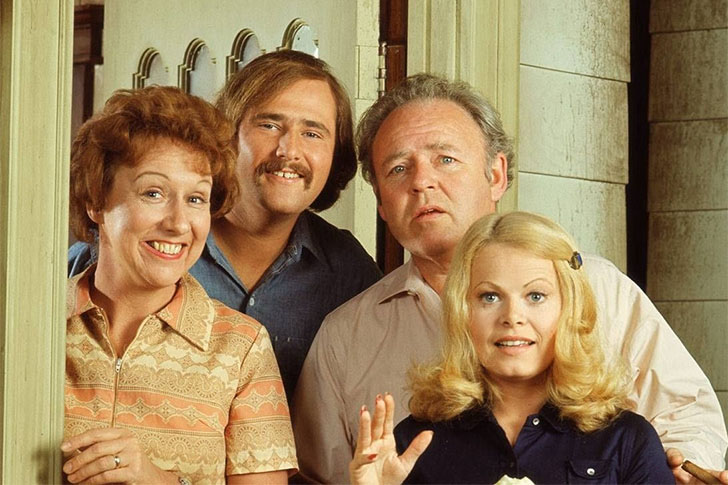
Yet another Norman Lear production, many critics still regard "All in the Family" as one of the greatest television shows in American history. The program focused on a working-class man and his family. In the summer after its debut, it became one of the most-watched shows on American television.
The family patriarch Carroll O'Connor was an absolute powerhouse. He stole the show anytime he was in a scene. So, unsurprisingly, he's widely regarded as one of the best leads of any sitcom in television history to date. This show was also quite progressive in its content, tackling themes such as miscarriages, antisemitism, and impotence.
The Brady Bunch (1969–74)
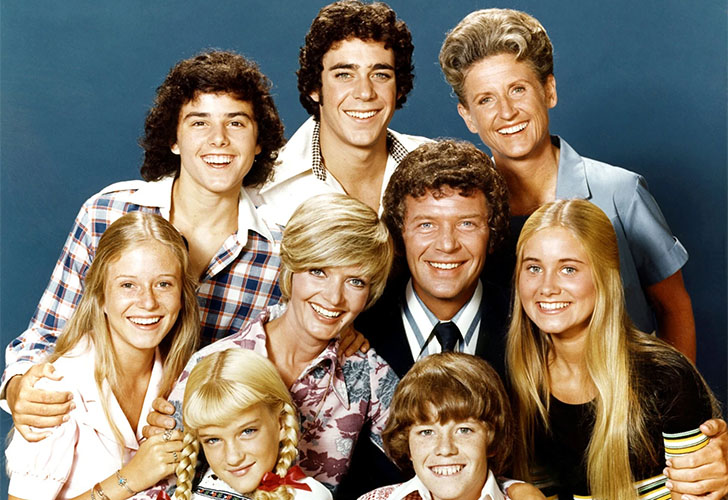
Probably America's favorite blended household, "The Brady Bunch" represented what all of us look for in an ideal family. It featured two supportive, kind parents, a bunch of siblings to play with, a wise-cracking housekeeper, and the everyday ups and downs any family would get into during the '70s.
Interestingly enough, "The Brady Bunch" gathered more support after it went into syndication, becoming a staple watch among children and teenagers. The show's success in syndication has led to several reunions and spin-offs based on the original, such as; "The Brady Brides," "A Very Brady Christmas," and "The Brady Bunch Hour," all initially aired in the '80s.
The Mary Tyler Moore Show (1970–77)
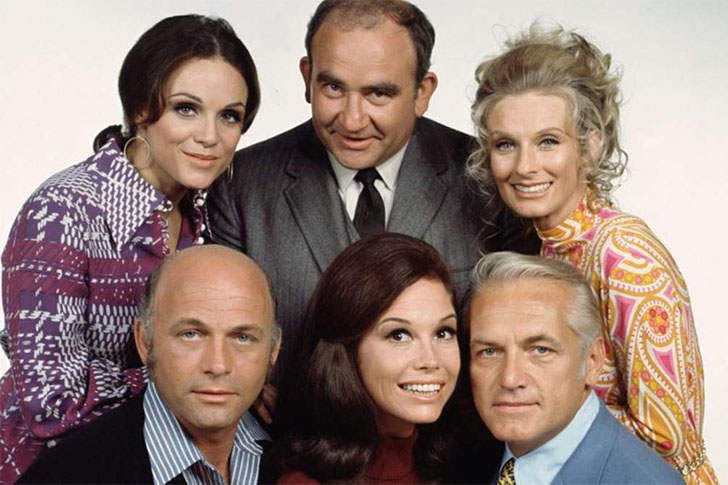
Arguably the best television TV program of the '70s, "The Mary Tyler Moore Show," broke numerous ignorant and outdated stereotypes of an assured yet fierce woman who would not rely on a man for anything. This theme alone made the series refreshing for its time.
The focus on a female character who was neither married nor dependent on a man was a rarity on American television. Pair this with brilliant writing and a genius comedic construct, and we have ourselves sitcom gold. There are countless shows in the '80s, '90s, and beyond piggybacking off this format, and understandably so. However, the original remains one of the very best.
